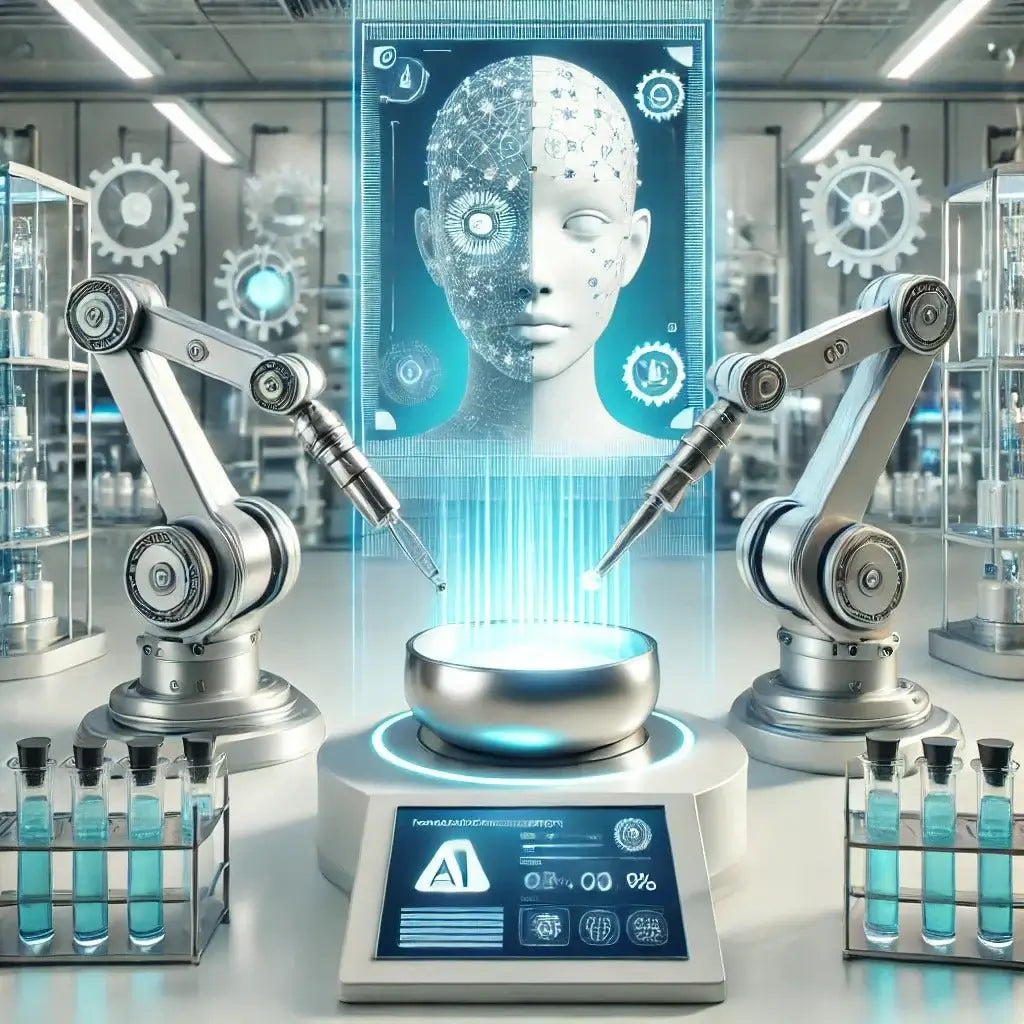
AI in natural beauty formulas
The beauty industry has drastically evolved in recent years, driven by technological innovations that are transforming how we care for our skin. With the rise of artificial intelligence (AI), it is now possible to develop ultra-personalized cosmetic products that cater to each individual's unique needs. But the big question remains: Can AI create the perfect skincare formula?
AI and Personalization in Cosmetics
Not all skin types are the same, and traditional beauty products are usually designed for general skin categories (dry, oily, combination, sensitive). However, with the use of AI and big data, brands can analyze individual characteristics in depth and formulate customized products.
Companies such as L'Oréal, Proven Skincare, and Atolla are already leveraging AI to collect consumer skin data through questionnaires, skin scans, and even DNA analysis. This data allows the creation of products containing only the necessary ingredients without unnecessary additives.
How AI Works in Cosmetic Formulation
Artificial intelligence operates in three key stages:
- Personal Data Analysis: Information is gathered on skin type, environmental factors, lifestyle, and specific concerns.
- Predictive Algorithms: AI compares user data with thousands of scientific studies and similar cases to identify the most effective ingredients.
- Precise Formulation: Based on the analysis, a personalized formula is designed, ensuring it contains only the necessary active ingredients in the ideal concentration.
This eliminates the need for unnecessary trial and error, reduces the risk of adverse reactions, and offers unprecedented efficiency in skincare.
Advantages and Challenges of AI in the Beauty Industry
Advantages:
✅ Personalized products tailored to real needs. ✅ Reduction in animal testing and unnecessary experimentation. ✅ Minimizes allergies and irritations by eliminating unnecessary ingredients. ✅ Efficiency and speed in the development of new products.
Challenges:
⚠️ High initial cost for consumers. ⚠️ Dependence on personal data, raising privacy concerns. ⚠️ Potential limitations on human creativity and intuition in product formulation.
The Future: AI and Sustainability in Natural Beauty
One of the most promising aspects of AI in cosmetics is its impact on sustainability. With advanced algorithms, companies can:
- Reduce ingredient and packaging waste.
- Optimize the use of natural resources.
- Develop products with lower environmental impact and carbon footprint.
Brands such as Neutrogena and Function of Beauty are already exploring these approaches, proving that AI not only enhances product effectiveness but also improves its ecological impact.
Conclusion: The End of Generic Cosmetics?
With the advancement of artificial intelligence, we are entering a new era where beauty products are no longer "one-size-fits-all" but are specifically designed for each individual. AI is revolutionizing the industry by offering more effective, personalized, and sustainable solutions.
Are we witnessing the future of skincare? All signs point to yes.
The real question now is: Are you ready to try a product created just for you?
If you're interested in reading more information about Shea Butter, click here.
